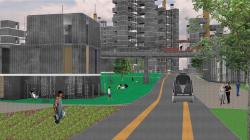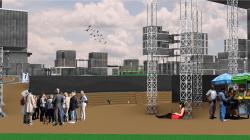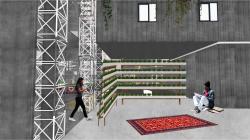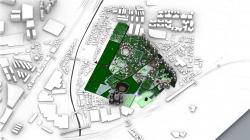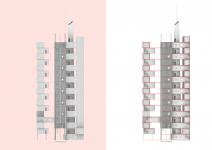In Brazil, migration from rural to urban areas, due to climate change’s effects on agricultural production, accelerated in recent decades, increasing city population density. As a result of the impact of climate change caused by global warming on Brazilian agricultural production, it is predicted that migration from rural areas to urban areas will accelerate and increase the population density in cities.
Many negative consequences of the climate crisis have to be faced. One of them is the unpredictable migration waves. There are sub reasons behind these waves that can create a climate crisis on their own: The disappearance of today’s job opportunities, famine, drought, high temperature, soil degradation, the deficit in soil moisture, and poverty in general. Brazil is expected to be affected by global warming at different levels due to its acreage on earth and its location between different climates. However, in general, agricultural production will be negatively affected, as is also the case in the whole world. These make Brazil more relevant in the area of planetary boundary sustainability than in any other area of global governance.
Ressurreição focuses on the climate change-induced migratory stresses on cities, which are expected to continue to increase in the near future. Located in Rio de Janeiro, the project aims to create a self-sufficient and sustainable urban area fused with urban agriculture, to provide accommodation for climate migrants, that can also generate an exemplary case.
2022
Brazil is a country with a dense green cover, including the Amazon forest, as well as dense cities such as Rio de Janeiro and São Paulo in the coastal areas. On the other hand, Brazil is the largest agricultural land and the most competitive agribusiness sector in the world. Agriculture is one of the most important sectors, accounting for 22% of the entire Brazilian economy. Nonetheless, Brazil accounts for 4% of the world’s carbon cycle. In addition, deforestation is frequently observed in Brazil mostly for the opening up agricultural lands.
Also, in today’s conditions, Brazil is already one of the leading countries in the region due to its economic power, and it is located as the route and/or final stop of internal and external immigrants. Poverty is one of the main reasons for migration. However, poverty can be a trigger or a hindrance to emigration. Income inequality, which will deepen with the climate crisis, can cause many problems. In the future, urban areas, particularly Rio de Janeiro, have a low vulnerability to the climate crisis. Therefore, in Brazil, major cities will be places for refugees.
The region where the project is located is in an area where industry, favelas, and high-rise buildings are located. Since Ressurreição will be a transition zone for people who migrate as a basic principle, it has been designed as a sustainable system and as simple as possible to meet the need for shelter.
The main concept of the project is Auxiliary of Contradiction. On one side, there is the area called 'Humility', where the Obruks, which are the nodes where immigrants stay and where various events will be held, is located. On the other side is the 'Noble' area with management, power generation, R&D laboratories, and soilless farming spaces underground. In addition, the current situation of the city was taken into consideration as a master plan idea. Therefore, considering the typological situation of the city, there is an accommodation area as a reflection of the region opposite the favelas, while on the other hand, there are the management areas and a clean energy production area, which is the reflection of the industrial zone. While the accommodation (Humility) is designed to include rich spaces that are high towards the periphery and can accommodate more people, the height decreases from the periphery to the inside, creating the needed open spaces as the opposite of the density of the favelas. In addition, these two regions are intertwined with the help of green axes and agricultural lands, as well as the transportation networks and Obruks, established in the region reinforce this permeability. Thus, the Auxiliary of Contradiction was obtained.
The number and quality of accommodation areas are important as the number and special circumstances of immigrants must be taken into account. Therefore, containers, which are widely used in international trade, have been chosen as the main material for accommodation. In addition, separate accommodation systems have been developed for families, single persons, and situations that may be between two groups, and these are designed as combinations. Thus, while rich spaces with different variations are obtained, the way for personalization is also opened.
Designer: Yusuf Alperen Bayır
Instructor: Meral Özdengiz Basak
Favorited 1 times

